Why is Elon Musk so obsessed with Twitter's bot accounts?
The sharpest opinions on the debate from around the web

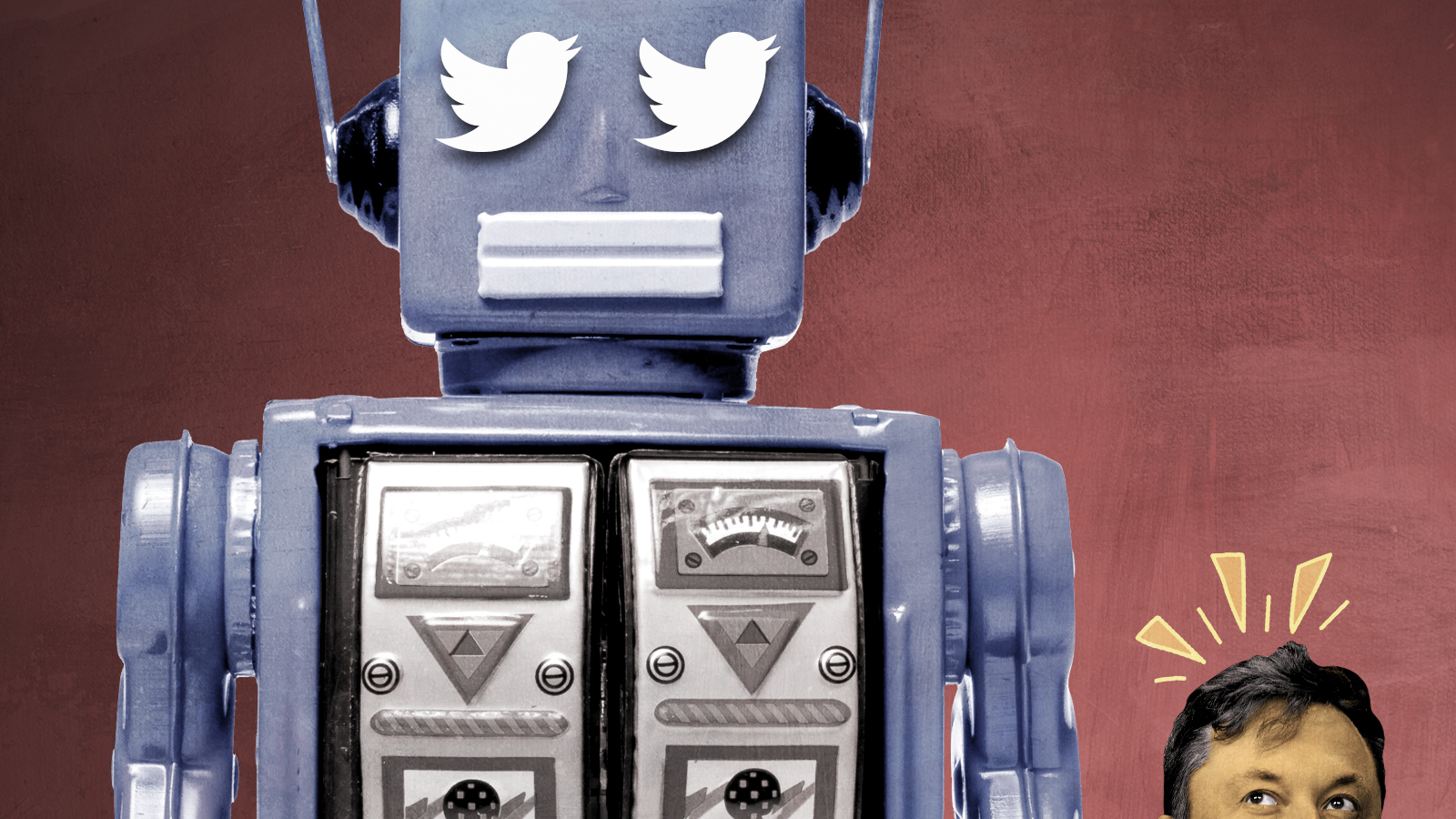
A free daily email with the biggest news stories of the day – and the best features from TheWeek.com
You are now subscribed
Your newsletter sign-up was successful
Practically from the moment Elon Musk made his unsolicited bid to purchase Twitter for $44 billion in April, he's been complaining about "spam bots," or automated Twitter accounts not run by humans.
"If our Twitter bid succeeds, we will defeat the spam bots or die trying!" Musk tweeted on April 21. On May 13, he tweeted that the deal was "temporarily on hold" because he needed assurance Twitter wasn't undercounting the number of bots on its platform. On June 6, his lawyers told Twitter and the Securities and Exchange Commission that unless the company stopped refusing to give him unspecified data to make his own analysis of Twitter's bot problem, he'll try to kill the deal.
Twitter responded by agreeing to give Musk access to its data "firehose" of millions of daily tweets, The Washington Post reports, though "Twitter's leaders are skeptical of Musk's ability to use the data to find previously undetected information." What's really behind Musk's obsession with Twitter's bots?
The Week
Escape your echo chamber. Get the facts behind the news, plus analysis from multiple perspectives.

Sign up for The Week's Free Newsletters
From our morning news briefing to a weekly Good News Newsletter, get the best of The Week delivered directly to your inbox.
From our morning news briefing to a weekly Good News Newsletter, get the best of The Week delivered directly to your inbox.
The bots are just an excuse
Clearly, "Elon Musk has buyer's remorse," Scott Nover writes at Quartz. Twitter's stock price has dropped sharply since Musk agreed to pay $54.40 on April 25, and "that's probably the real reason Musk is spending so much time talking about bots."
Perhaps Musk wants out of the deal because he has "grown bored of Twitter, or perhaps because the prices of social-media stocks, and of Musk's company Tesla Inc., had fallen, and $54.20 looked pretty expensive," Matt Levine writes at Bloomberg Opinion. "The merger agreement does not, however, allow Musk to walk away because he changed his mind," and blaming allegedly undercounted bot numbers won't help his case.
For one thing, "Musk has been talking about Twitter's bot problem forever," Levine notes, "and in fact he originally said that he wanted to buy Twitter in order to fix the bot problem, so no one could possibly believe him when he said that he wanted to walk away from the deal because he just discovered that Twitter has a bot problem." Musk "said he wanted to buy Twitter to get rid of the spam bots, and now he's saying he doesn't want to buy Twitter because it has spam bots," tech reporter Casey Newton tells Vanity Fair. "Only one of those things can be true."
The bots really do affect Twitter's bottom line
Musk isn't the only person concerned about bots. "Fake social media accounts have been problematic for years," The Associated Press reports. "Advertisers rely on the number of users provided by social media platforms to determine where they will spend money," so a prospective owner of Twitter would want to know the real numbers. Twitter says fewer than 5 percent of its accounts are bots, while Musk speculates the number could be 20 percent or higher.
A free daily email with the biggest news stories of the day – and the best features from TheWeek.com
Bots are "a big deal," Musk argued on a June 6 podcast. "It seems like if you said, 'Okay, I agree to buy your house.' You say the house has less than 5 percent termites. That's an acceptable number. But if it turns out it is 90 percent termites, that's not okay. It's not the same house."
Texas Attorney General Ken Paxton (R) made a similar case when, also June 6, he announced an investigation into Twitter's bot count, arguing lowball numbers could violate the Texas Deceptive Trade Practices Act. "Texans rely on Twitter's public statements that nearly all its users are real people," he said. "It matters not only for regular Twitter users, but also Texas businesses and advertisers who use Twitter for their livelihoods."
Bots are a particular nuisance for Musk
Analysts saw Paxton's lawsuit "as a politically expedient way to align" himself with Musk, who recently moved himself and Tesla to the state and announced he is a Republican, The New York Times reports. And "whatever his intention in raising the issue," Musk "likely has far greater exposure and experience with fake and spam accounts than most on the social-media platform," Sarah Needleman writes at The Wall Street Journal.
Researchers say "Musk's prominence and interaction with other users, as well as the topics he tweets about, make him a magnet for people looking to spread spam and other suspicious content," Needleman reports. And a recent estimate from SparkToro found that "around 70 percent of Mr. Musk's followers on Twitter are spam, fake or inactive, versus 41 percent for all other accounts with between 65 million and 120 million followers."
Musk is "an outlier among outliers," bot expert Darius Kazemi tells the Journal. "His experience is going to be different from not just the average user, but the average celebrity."
In the end, though, "who wins here?" Caleb Ecarma asks at Vanity Fair. "Twitter's board? Musk? The bots? According to close industry observers, what we're seeing play out is likely less about spam accounts and more about the power dynamics between Twitter — a company that's struggled to get itself on firm footing — and Musk, the only man who appears interested in buying it."
Peter has worked as a news and culture writer and editor at The Week since the site's launch in 2008. He covers politics, world affairs, religion and cultural currents. His journalism career began as a copy editor at a financial newswire and has included editorial positions at The New York Times Magazine, Facts on File, and Oregon State University.
-
 The 8 best TV shows of the 1960s
The 8 best TV shows of the 1960sThe standout shows of this decade take viewers from outer space to the Wild West
-
 Microdramas are booming
Microdramas are boomingUnder the radar Scroll to watch a whole movie
-
 The Olympic timekeepers keeping the Games on track
The Olympic timekeepers keeping the Games on trackUnder the Radar Swiss watchmaking giant Omega has been at the finish line of every Olympic Games for nearly 100 years
-
 Elon Musk’s starry mega-merger
Elon Musk’s starry mega-mergerTalking Point SpaceX founder is promising investors a rocket trip to the future – and a sprawling conglomerate to boot
-
 Will SpaceX, OpenAI and Anthropic make 2026 the year of mega tech listings?
Will SpaceX, OpenAI and Anthropic make 2026 the year of mega tech listings?In Depth SpaceX float may come as soon as this year, and would be the largest IPO in history
-
 Ryanair/SpaceX: could Musk really buy the airline?
Ryanair/SpaceX: could Musk really buy the airline?Talking Point Irish budget carrier has become embroiled in unlikely feud with the world’s wealthiest man
-
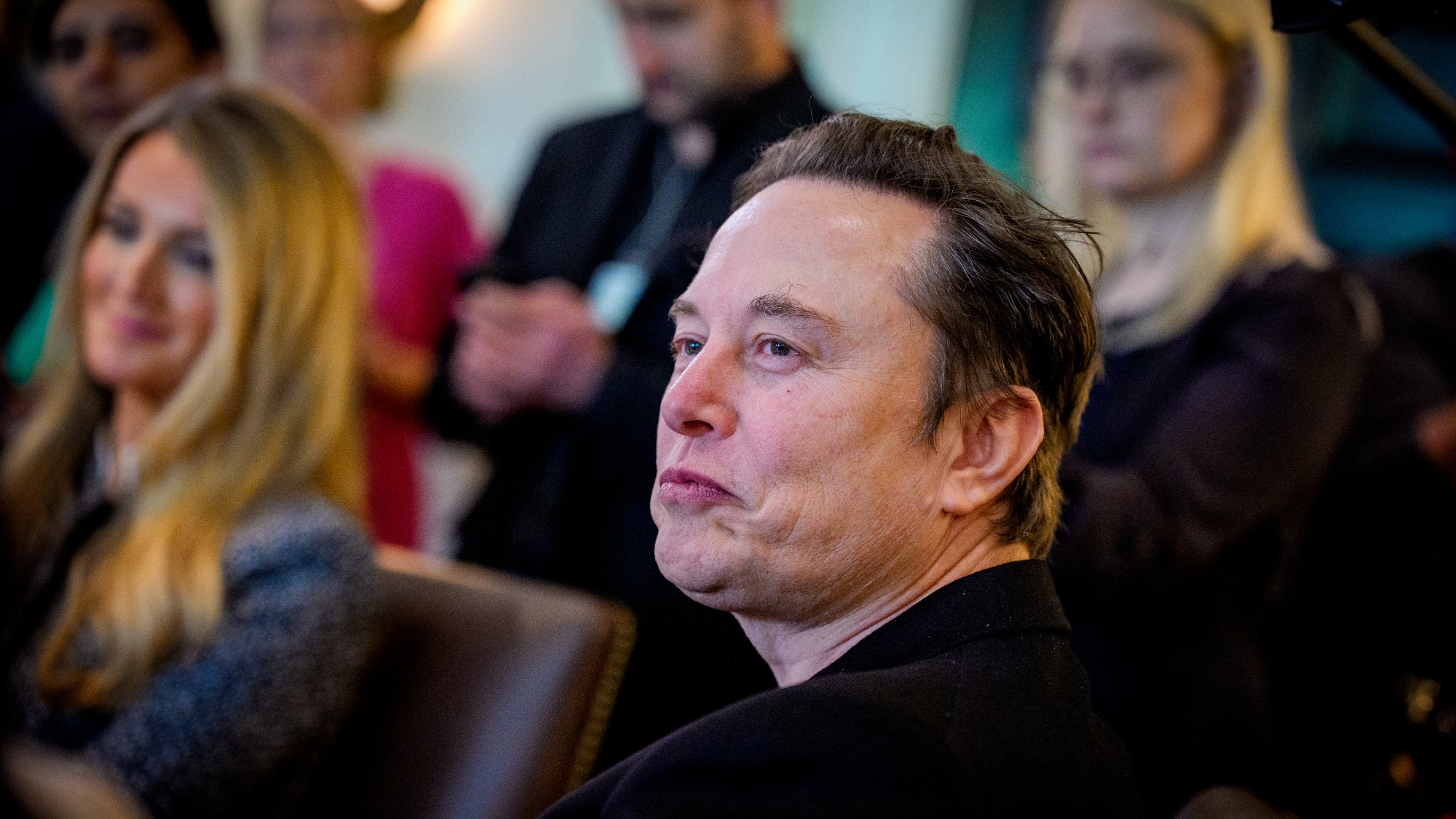 Musk wins $1 trillion Tesla pay package
Musk wins $1 trillion Tesla pay packageSpeed Read The package would expand his stake in the company to 25%
-
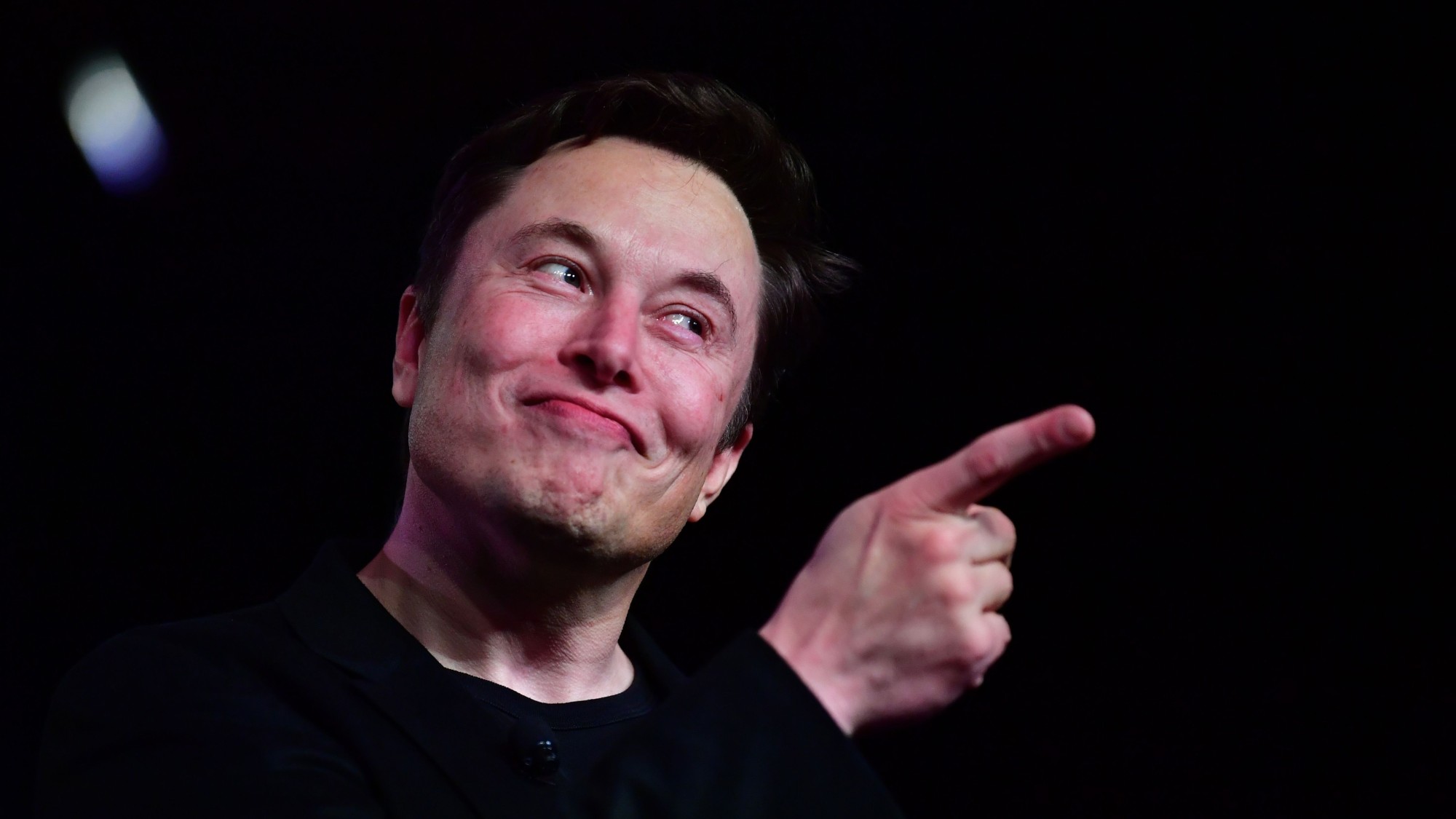 How Tesla can make Elon Musk the world’s first trillionaire
How Tesla can make Elon Musk the world’s first trillionaireIn The Spotlight The package agreed by the Tesla board outlines several key milestones over a 10-year period
-
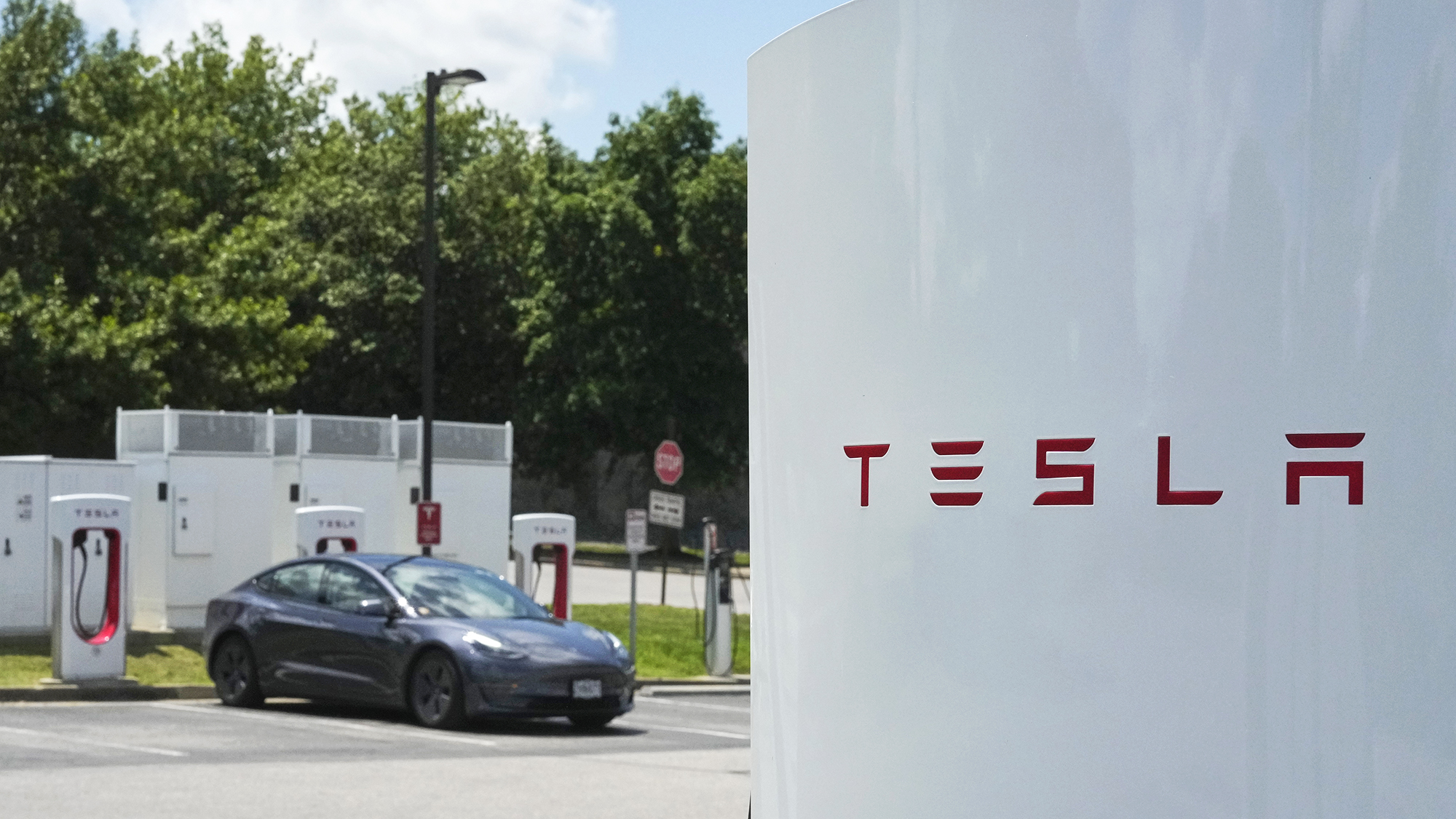 Tesla reports plummeting profits
Tesla reports plummeting profitsSpeed Read The company may soon face more problems with the expiration of federal electric vehicle tax credits
-
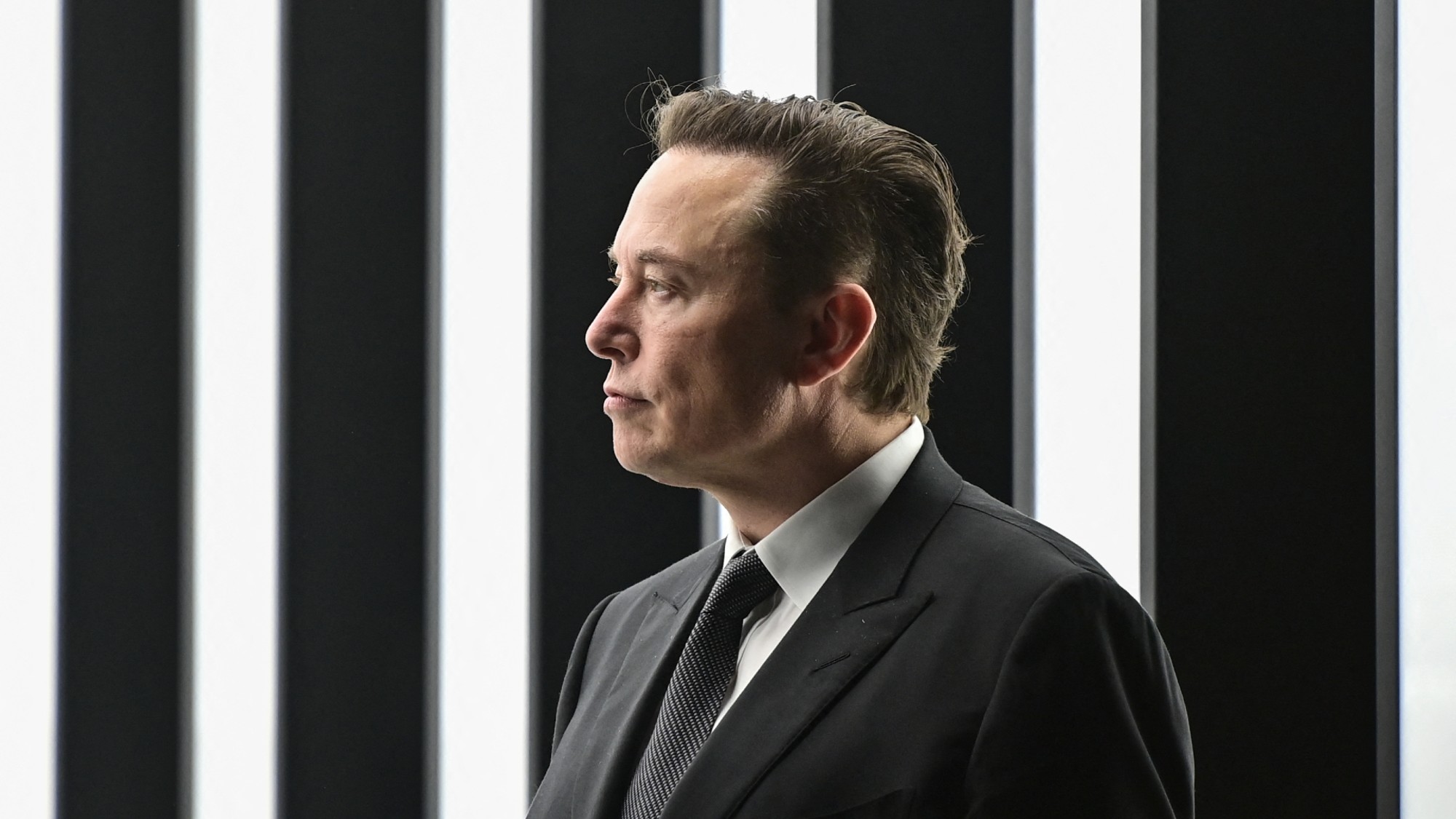 How could Tesla replace Elon Musk?
How could Tesla replace Elon Musk?Today's Big Question The company's CEO is its 'greatest asset and gravest risk'
-
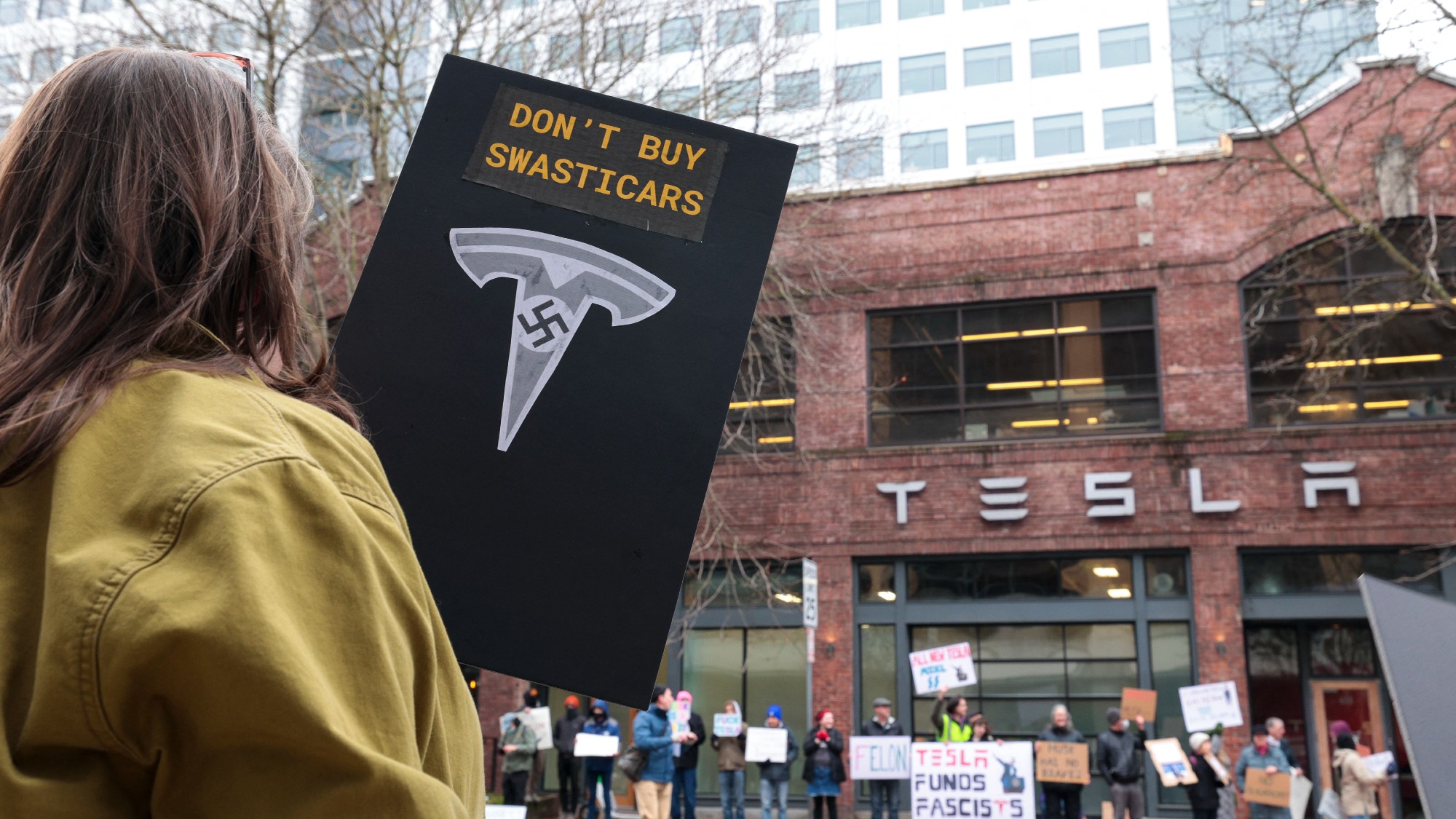 Elon Musk: has he made Tesla toxic?
Elon Musk: has he made Tesla toxic?Talking Point Musk's political antics have given him the 'reverse Midas touch' when it comes to his EV empire
